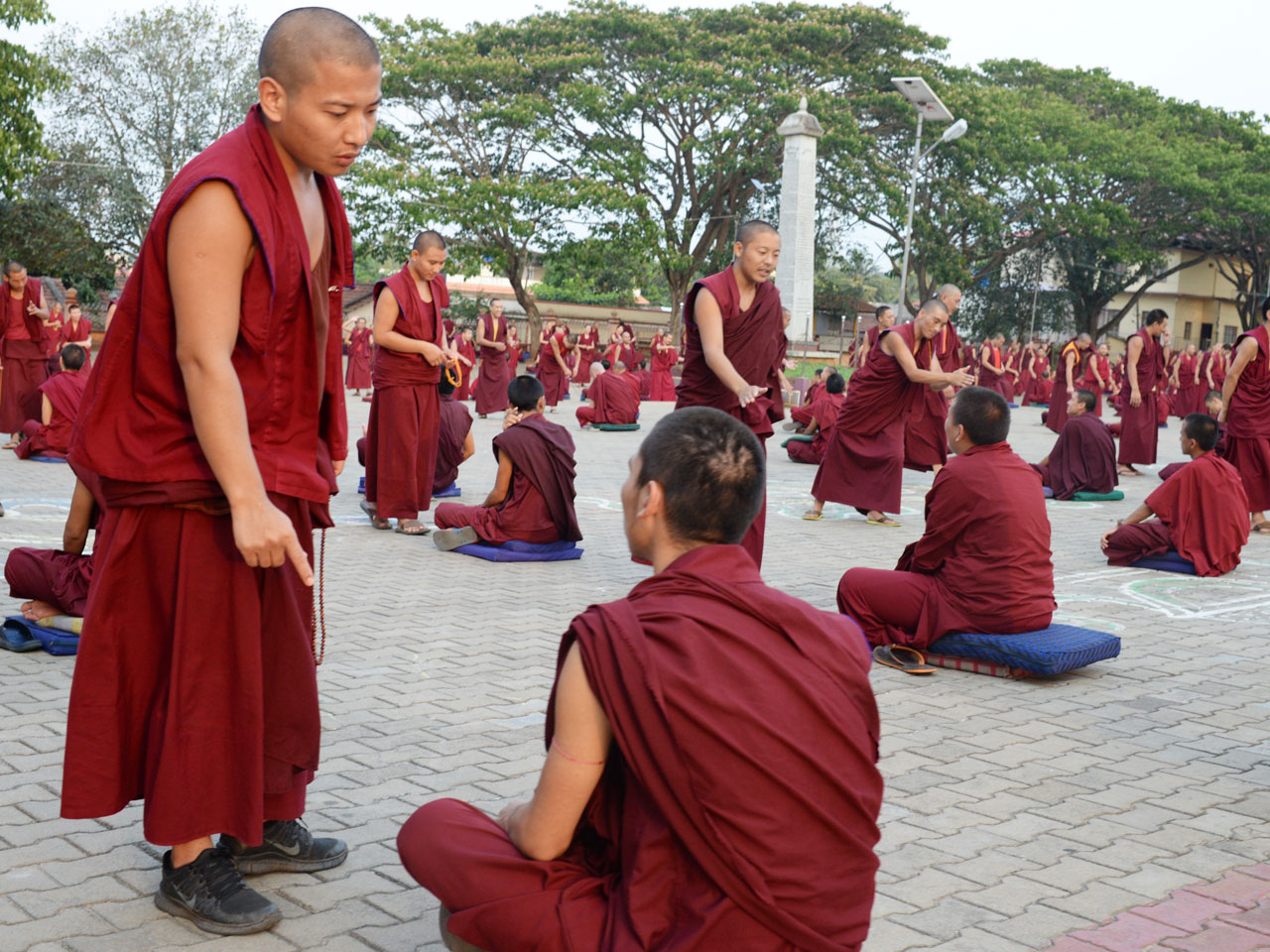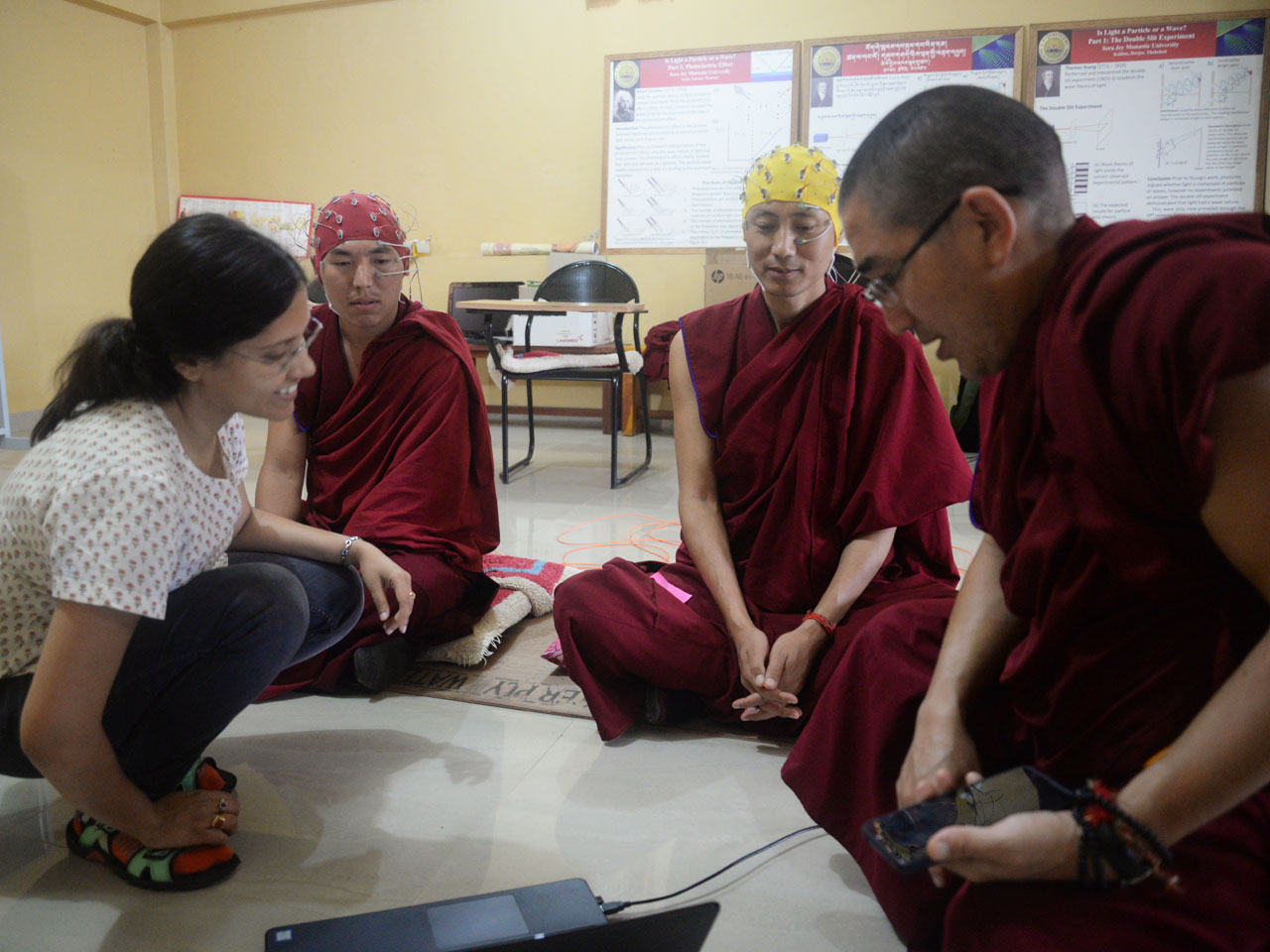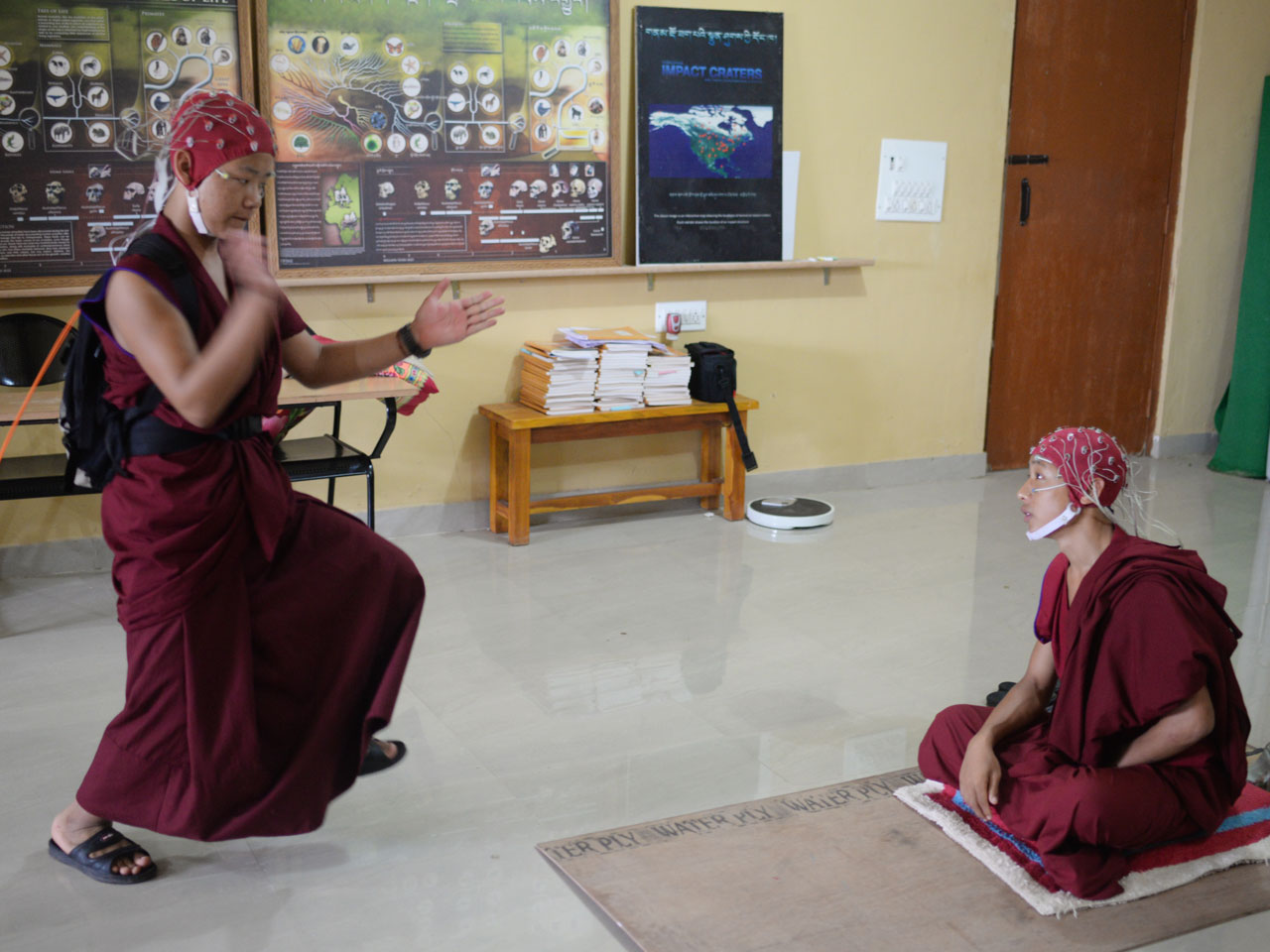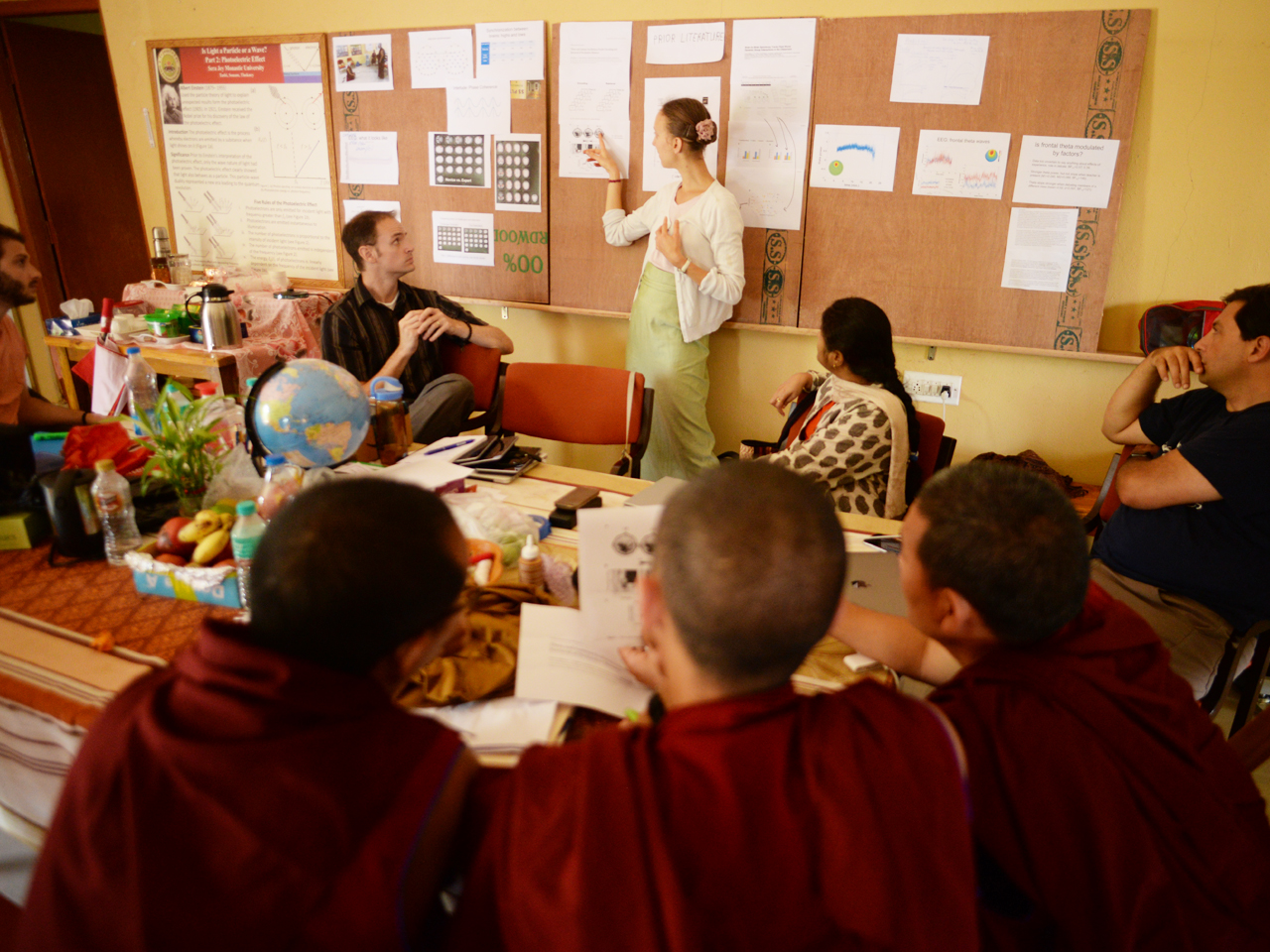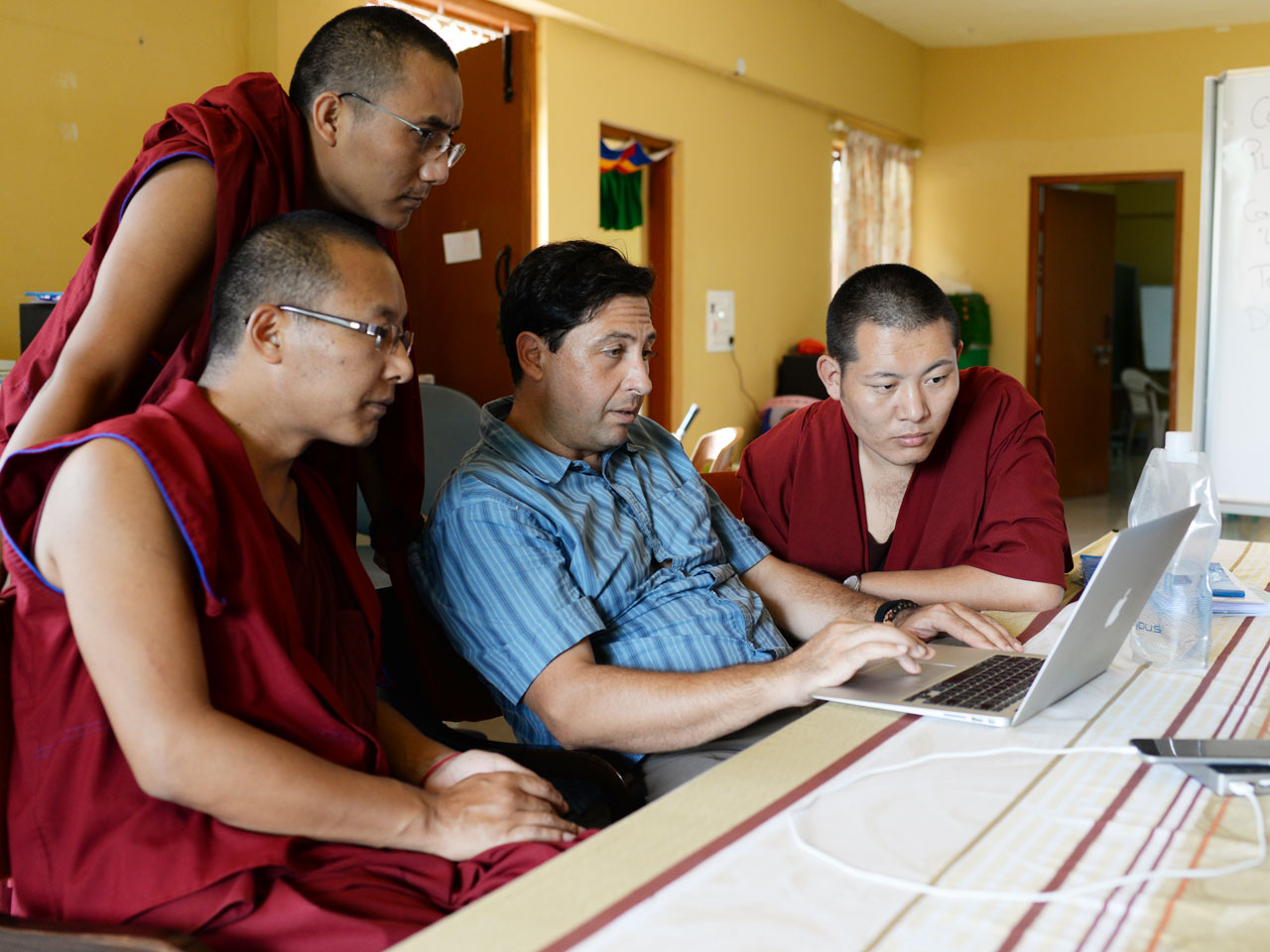Research Collaborations position specific groups of monks and nuns as co-investigators, provides ‘on-the-job’ training in scientific research methods, and forges genuine inquiry partnerships.
“The proper effective way for preservation of Buddha dharma is not through prayer, and ritual things. It’s through studying, thinking and collaboration with modern scientists.”
His Holiness the Dalai Lama
Study of Monastic Debate at Sera Jey and Sera Mey Monastery
Tibetan Buddhism describes two types of meditation: discursive (involving analytical thinking and philosophical argument) and single-point (focusing on a single object like one’s breath or the image of a deity). Single-point meditation has been the focus of widespread enthusiasm around mindfulness practice. But debate is practiced more by monastics, and they consider it to be central to spiritual progress. (more..)
New Collaborations
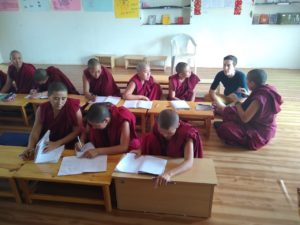
Last Visit: Jangchup Choeling Nunnery December 1 to 8, 2019 – Dr. Laura Specker Sullivan
Neuroscience and Cross-Cultural Ethics
at Jangchub Choeling Nunnery
Tibetan monastics have important and relatively underappreciated intuitions on the intersection of science, medicine, and ethics. Currently, many of the tools for analyzing these issues come from Western philosophical traditions. Bioethics engages Buddhist perspectives less frequently. When it does, Buddhism is often presented as a theoretical standpoint removed from religious practice; this reflects the secularization of Buddhism in North America. Yet, Buddhism as a living monastic tradition presents some different ethical orientations than the abstract Buddhist theory typically invoked in bioethics.
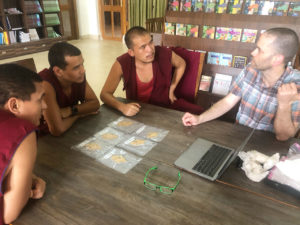
Last Visit: Drepung and Gaden April 10 to 18, 2019 – Dr. Richard Maclehose
Alzheimer’s Disease and Cognitive Practices among Tibetan Buddhist Monks
at Gaden and Drepung Monasteries
Alzheimer’s disease (and related illnesses) are a global health crisis. Today, over 44 million people worldwide are suffering from this condition. As the world population gets older, this number will continue to increase in coming years. Scientists have discovered some factors, such as exercise and healthy diets, that can help decrease the risk of Alzheimer’s. However, no one knows how to completely prevent the disease. Because of reports of low risk of Alzheimer’s and related diseases among Tibetans and Tibetan Buddhist monks, we would like to find out: (1) What proportion of Tibetan Buddhist monks in Mundgod have symptoms of Alzheimer’s; and (2) Are there Tibetan Buddhist practices that are related to decreased risk of Alzheimer’s disease.
“Not only Buddhist but ancient Indian knowledge about mind, and emotion, and how to tackle emotions, are highly advanced. Now, in order to revive the ancient Indian knowledge within this country, we need more collaboration with the scientists. We are not talking about nirvana or next life, but simply how to tackle our emotions. In this respect, scientific research and scientific findings are very helpful to bring conviction.”
His Holiness the 14th Dalai Lama
November 13, 2017

